Search
Remove Ads
Advertisement
Summary 
Loading AI-generated summary based on World History Encyclopedia articles ...
Search Results

Definition
Sundiata Keita
Sundiata Keita (aka Sunjaata or Sundjata, r. 1230-1255) was the founder of the Mali Empire (1240-1645) in West Africa. A prince of the Malinke tribe, Sundiata would not only overthrow the rule of the kingdom of Sosso (c. 1180-1235), the biggest...

Definition
Mali Empire
The Mali Empire (1240-1645) of West Africa was founded by Sundiata Keita (r. 1230-1255) following his victory over the kingdom of Sosso (c. 1180-1235). Sundiata's centralised government, diplomacy and well-trained army permitted a massive...
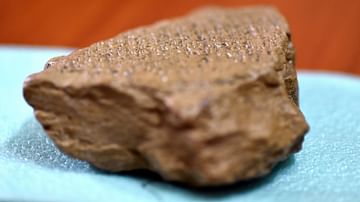
Article
The Newly Discovered Tablet II of the Epic of Gilgamesh
Surpassing all other kings, heroic in stature, brave scion of Uruk, wild bull on the rampage! Going at the fore he was the vanguard, going at the rear, one his comrades could trust! (Prologue, Tablet I, The Epic of Gilgamesh...
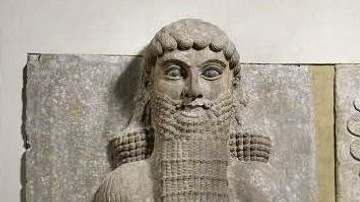
Definition
Gilgamesh
Gilgamesh is the semi-mythic King of Uruk best known as the hero of The Epic of Gilgamesh (c. 2150-1400 BCE) the great Babylonian poem that predates Homer's Iliad and Odyssey by 1500 years and, therefore, stands as the oldest piece of epic...
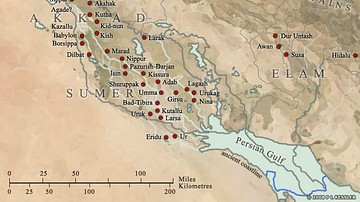
Article
The Atrahasis Epic: The Great Flood & the Meaning of Suffering
The Atrahasis is the Akkadian/Babylonian epic of the Great Flood sent by the gods to destroy human life. Only the good man, Atrahasis (his name translates as `exceedingly wise') was warned of the impending deluge by the god Enki (also known...
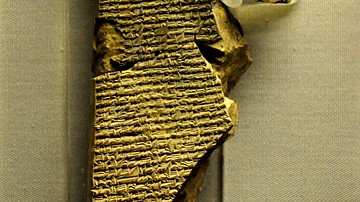
Article
Enuma Elish - The Babylonian Epic of Creation - Full Text
The Enuma Elish (also known as The Seven Tablets of Creation) is the Babylonian creation myth whose title is derived from the opening lines of the piece, "When on High". The myth tells the story of the great god Marduk's victory over the...
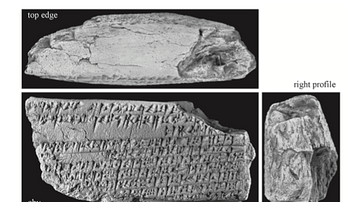
Article
New Gilgamesh Fragment: Enkidu's Sexual Exploits Doubled
Sometimes it is the smallest discoveries that have the largest impact. When Alexandra Kleinerman and Alhena Gadotti found a new fragment of the Epic of Gilgamesh in 2015 CE, it did not seem to be particularly impressive. The broken tablet...

Article
The Mesopotamian Pantheon
The gods of the Mesopotamian region were not uniform in name, power, provenance or status in the hierarchy. Mesopotamian culture varied from region to region and, because of this, Marduk should not be regarded as King of the Gods in the same...

Definition
Mesopotamian Literature
Ancient Mesopotamian literature developed c. 2600 BCE after scribes, who had formerly been record keepers, began composing original works in the region of Sumer. The Sumerians invented writing c. 3500 BCE, refined the script c. 3200 BCE...
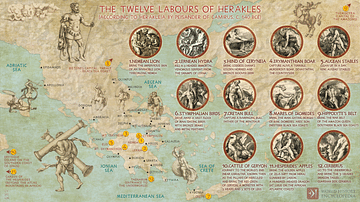
Image Gallery
4 Maps of Epic Ancient Quests
In this gallery, we cross the ancient Mediterranean world four times to follow the adventures of four great heroes from Greek and Roman mythology. Here are visual representations of timeless tales of heroism, divine challenges, and fearsome...